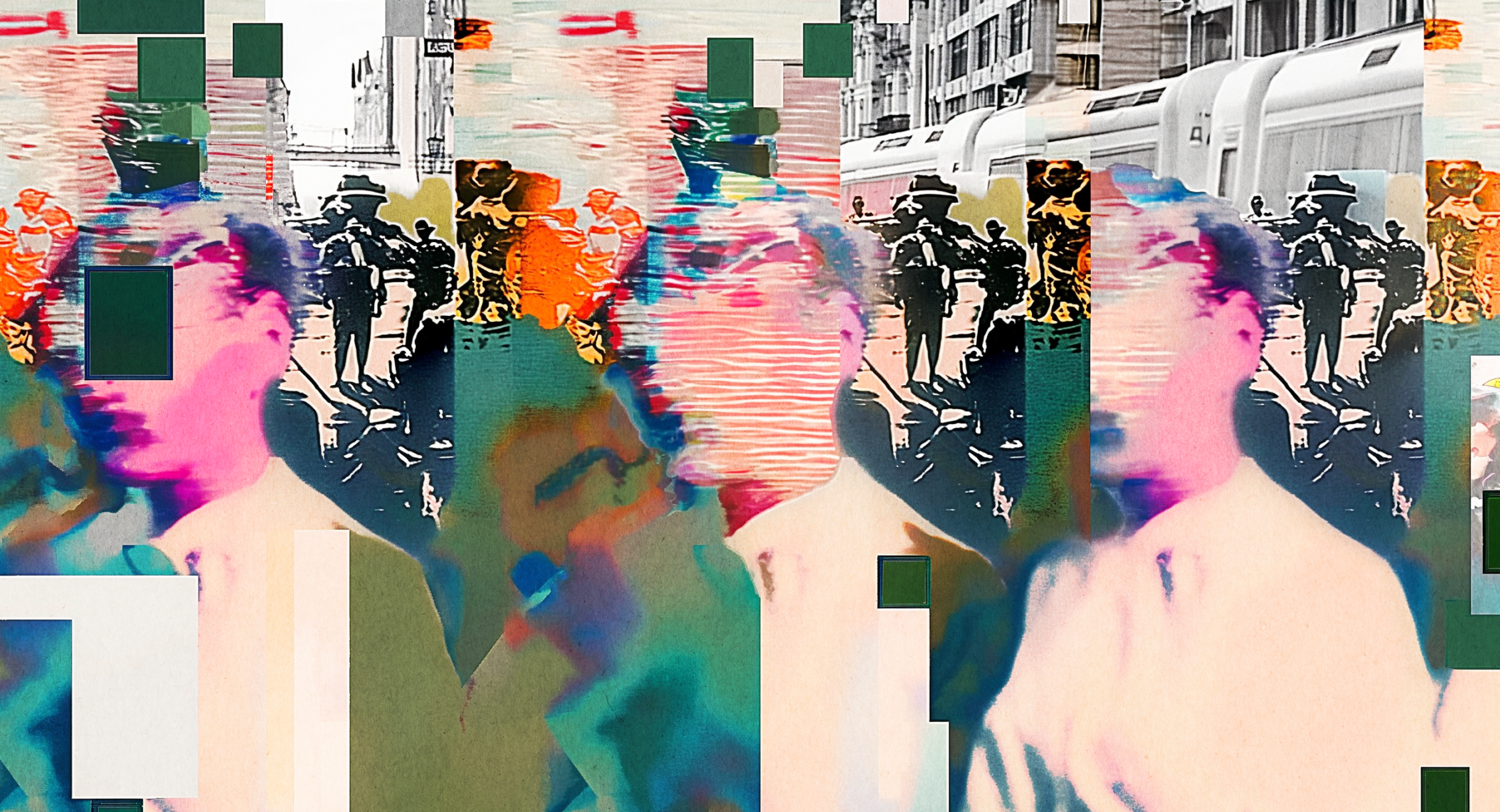Writing in a Crowded World

by Martha Schabas
A still life of my living room: Three months’ worth of New Yorker magazines collecting dust beside the TV. A stack of unread library books piled on the adjacent coffee table. Forty bookmarked articles on the open browser of my Macbook. Several volumes of untranslated French classics on the built-in shelf above, books I keep trying (and failing) to get through.
I look at the various incarnations of my to-be-read list, and I think: I am going to die.
Reading is a constant reminder of my mortality. Life is finite, and there are a truly madcap number of books in print (160,000,000 according to Google Books). Choosing your next read is a zero-sum game; time won for Thomas Picketty is time lost for Marcel Proust. And while we tell ourselves we’ll get to certain seminal works eventually—obviously we have no intention of leaving this world without finishing Ulysses or reading Stephen Hawking or understanding what happened during the Second Punic War— the end has a knack for finding us under-prepared. We all die with gaps in our knowledge. Chasms, actually. There’s no conceivable way to read it all.
It may seem counterintuitive, but I find the discord between how much we read and how much we write to be wildly heartening. To me, this imbalance is a moving affirmation of the power of the written word. Why else would we, as a civilization, continue to publish 2.2 million books a year (not to mention articles, monographs, newsletters) when the average person gets through roughly 0.00000625% of them in their lifetime? Is it because we are complacent about the issues of the day, fatalistic about the future, and content with only a narrow range of material? Or does it suggest an insatiable appetite for knowledge, a belief in the value of learning, and a commitment to diversity and breadth?

As a novelist and editor, I’d say that I’m very sensitive to writing, which I mean in the most literal sense of the word.
It’s a bit like the way I have a sensitive nose—I’m often bothered by smells long before anyone else seems to notice them. I’ve heard other artists and practitioners describe a similar fussiness when it comes to their discipline. My grandfather, a classical musician who ran a music conservatory for many years, claimed it took no more than a bar or two of music for him to assess the talent of a fledgling pianist or soprano. The artistic director of a major Shakespeare company once told me pretty much the same thing—an actor need only utter the first line of their soliloquy and she knew whether she wanted to keep listening.
I feel this way after reading a few sentences of text. Sometimes, it takes a paragraph. I’m not boasting; this is a tendency that can make me a very lazy, very impatient, and very unfair reader. I can become so distracted by a tone that strikes me as belabored, overwrought, insincere, childish, corny, mawkish, etc. that I write off certain authors for good and, in so doing, deprive myself of useful wisdom and, no doubt, instances of genius, too.
But while my case may be extreme, I think we are all suckers for style. And I think the oversupply of content means we can indulge this preference so frequently and shamelessly that it has set a certain standard. Studies show that we are not utilitarian when it comes to language; we respond to words with much more than the information-seeking parts of our brain. Think of how you react to someone speaking—you clock volumes before you register what they’re actually saying. The process might be largely intuitive, but you’ll note the tone of their voice, its register, their body language, their mannerisms, whether or not they look you in the eye. Whether conscious or not, you’ll cobble together an entire character study and store that away with whatever you glean from their speech so that, looking back, the memory of one will be indistinguishable from the other.
The same blurring of form and content happens when we read.
Poets will tell you that form and content are inseparable because no two formal arrangements of text will create the same impression. I’m going to tell you this is just as true for thought leadership.

In the style of great thought
The plagiarism war that erupted last winter and resulted in the resignation of Harvard president Claudine Gay was politically motivated, but it raised some fascinating questions about “original thought.” In a New York Times article on the controversy, John McWhorter argued that trying to pass someone else’s idea off as your own is a far worse offense than cutting and pasting a few paragraphs of “basic” text. Reading this, I started to get sensitive.
Let’s start by considering McWhorter’s notion of “someone else’s idea,” which implies he believes that people produce ideas that can rightfully be called their own. Is that really the case? Mark Twain famously thought otherwise; he claimed there was no such thing as an original idea, only “the same old pieces of colored glass” rearranged over centuries. British modernist T.S. Eliot agreed with him: “Immature poets imitate; mature poets steal.” Isaac Newton was suggesting something similar when he wrote about standing on the shoulders of giants, implying that innovation is long, cumulative, collaborative. And in the realm of fiction, there’s a popular conception that there are only a few basic plotlines (three, six, seven, or 36 depending on who you ask) that authors just repurpose again and again.
But beyond overlooking the interconnectedness of knowledge, McWhorter’s stipulation also minimizes what language actually does. He sees its role as a messenger of meaning, rather than the source of meaning itself. There’s an entire school of twentieth century philosophy that would disagree with him. The “linguistic revolution” of Wittgenstein and Sausurre cemented the idea that language creates thought. It’s not a neutral channel that allows us to express meanings and experiences; instead, “we can only have the meanings and experiences in the first because we have a language to have them in” (Terry Eagleton). Noam Chomsky built on this idea, arguing that language didn’t evolve to help us communicate; it evolved so that we could think.

The bestsellers of business
Let’s take a look at popular nonfiction and business books that have landed on bestseller lists in recent years. Wharton professor and thought-leader extraordinaire Adam Grant is a good place to begin; his six books on topics such as motivation, generosity, and human behavior have sold millions of copies and been translated into dozens of languages. Think Again, his 2021 book on the importance of rethinking your most dearly held beliefs, has probably been the most successful, both critically and commercially. In his characteristically lucid prose and engaging style, he challenges readers to reconsider their assumptions and biases, entreating them to lead a life defined by constant learning and curiosity. The book is full of entertaining anecdotes and reams of convincing research. Grant has incisive ways of reframing ideas such as personal conviction and intellectual integrity.
But is there a single original idea in Think Again? I don’t think Grant would be the slightest bit offended by a resounding no. That’s really the book’s whole conceit; it takes a familiar, almost hackneyed, concept that has lost meaning and urgency over time and shows us that it deserves our attention. Grant rescues a maxim that dates back to Socrates, “the unexamined life is not worth living,” and demonstrates how vital it is to contemporary life.
Take another modern business classic, such as Charles Duhigg’s Smarter Faster Better. It’s a great book—engaging, well-written, and thought-provoking. But it never purports to offer an original idea. Instead, it takes a question we’ve all asked—why are some people so productive—and finds the answer through dogged research. It looks at productivity across diverse industries and professions, analyzing what it means to FBI agents compared to what it means to Saturday Night Live writers. Duhigg is a Pulitzer-Prize winning investigative journalist for The New York Times and it shows. This is a book of brilliant reporting.
So, if original ideas aren’t the engine driving the publishing industry then what is? The word that comes to my mind is perspective. CEO thought leadership is powerful and credible when it offers a reader access to their specialized point of view. This is rarely about reinventing the wheel; instead, it’s about noticing what’s anomalous or interesting from your viewpoint and sharing it honestly, generously, and responsibly.
There’s another word I’d like you to consider, too. It’s what I’ve been hinting at this whole time. Style. Yes, it’s elusive and subjective. Sure, it’s vague and hard to pin down. But I promise you this: There isn’t a single original thought in any part of this article. Have you enjoyed it despite this?
Ask yourself why.
Martha Schabas

Leaving Tangier

Business Must Speak a New Language

What Makes For a Real Community



